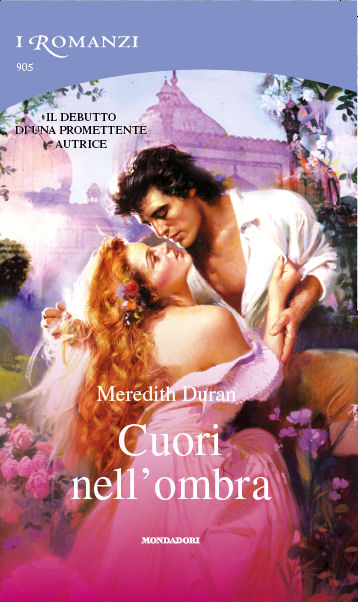I have a major drawback as a professional writer: I can’t think and write at the same time. Or rather, I can’t think and write and judge my own work at the same time.
I have a non-drawback as a professional writer: I don’t get blocked. I can get words on paper, lots of words, if they are what’s required.
Combine the first two, you have a delivered first draft of somewhat questionable quality
I have a possibly unusual aversion: I ban anything that is remotely true–or even reminiscent–of my personal life from the pages of my books.
I also have rather definite tastes in what I like as a romance reader: characters who have lots of legitimate beef with each other; characters who won’t make anyone else happy but each other. I.e., somewhat strange, off-kilter relationships.
Which means that a lot of time when I’m just writing–and not thinking–I have no idea where this high-stake, grievance-laden, completely-unfamiliar-to-me relationship is going. Who the heck are these people? And why are their lives so eff-ed up?
Which means a first draft that goes entirely off the rail at some point: halfway, two-thirds, last quarter–maybe all of them.
Now let’s add one more somewhat strange aversion: I don’t like plot. I don’t have anything against plots per se; I enjoy a good mystery, thriller, and SF as much as anyone else. And one of the reasons I adore the first Harry Potter is precisely for the beauty of its impeccably woven plot. I just don’t like a lot of external plot in a historical romance. What I prefer is to place my characters in a situation, hopefully of their own making, and then just sit back and watch them dig their way out. (Which in a first draft they typically end up tunneling directly into a sewer main, but hey, that just means they have to start over again.)
But HIS AT NIGHT had to have a plot, what with the hero being a secret agent and all. But I resisted–oh, how I resisted. In the first version I did away with the villain by chapter two–not the falling off a cliff only to come back at the end kind of doing away. Dude was really, really dead and gone. Buried. Feeding maggots. In the second version I offed him midway through the book. Just have no interest in stand-alone villains. Much more fun letting hero and heroine be their own worst villains. And the hero is a secret agent? Well, who gives a crap about the rest of his case once he has met the heroine. Time for moody angst!
Have I mentioned that the first complete draft of HIS AT NIGHT was an EPIC FAIL?
Yes, it was. *nods head sagely* And this was WITH my editor reading along the way, so as to avoid another first-draft fail. Somehow her repeated advice that I give the story a backbone of a strong plot fell on deaf ears–or blind eyes, I guess, since we communicate almost exclusively by email. I should have known, as in the final weeks before I handed in the first draft my head shattered in excruciating pain every time I worked on the damn thing–and my head never hurts while working on a book unless things are going horribly wrong.
At Despair.com–thanks Jessica RRR–there is a de-motivation poster that says, “PERSEVERANCE: The courage to ignore the obvious wisdom of turning back.” That would be me.
So…the overhauls.
No need to talk about the versions that had been discarded along the way. Following the first complete draft, the overhaul centered on that backbone of plot–for the events of the book to cohere. It was a 60-70% rewrite. Which did improve the plot very much but when the line edits came back, it became obvious–after my editor pointed it out left and right–that the book had lost a lot of its urgency and sharpness. So at the line edit stage, which should be the writing equivalent of sprinkling the chopped parsley and maybe a bit more of freshly ground pepper on the finished dish, I cooked the darn dish from the beginning again–another 40-50% overhaul.
(I was hoping this would be NQAH amount of work, but it turned out to be DELICIOUS redux–ack!–and in half the time, no less.)
As I progressed through this final rewrite, whenever I refinished a portion of the book, I would send it to my beloved Janine, who was reading it for the first time, for copyediting–the amount of changes I’d made meant that the official copyedits, which was made on the same line-edited manuscript, weren’t as useful–and critiquing.
It soon became clear from Janine’s copious and meticulous comments that in all that wrestling with plot and coherence, I’d 1)forgotten how to properly structure a sentence and 2)far worse, largely neglected the emotions in certain key scenes. The two stem from the same source, i.e., trying not to sink too much time on prose when the larger structure of the book remained unresolved. But at some point, especially in a book about the matters of the heart, one has to sink into character and feel, and that is impossible with pages upon pages of just dialogue and action.
It was like learning to write all over again: delving into character emotions, developing insights, ratcheting up the tension, making scenes matter.
Everything was working beautifully up until the beginning of chapter 20. As my deadline neared again, it dawn on me that I still hadn’t properly resolved one of the major issues near the end of the book, when secrets and lies burst open, past and present collide, and LOTS OF STUFF hang in balance, because my God, who the hell are these people and why are their lives so fucked and how am I supposed to know how anyone would do in such a FUBAR situation? The last time I led a double-life and my lies exploded in my face was when I was in fifth grade, when it was finally discovered that I, the model student*, had stopped doing my homework weeks ago.
I stopped sleeping. At one point, so sleep-deprived, I started writing a farce of an ending, giggling all the while. My critique partner, Janine, who stayed up one whole night and half the next day with me–I can never be grateful enough–sagely put down her foot and told me to stop and take a nap.
I did managed to get down a non-farcical version and turn it in to the typesetter. But less than 24 hours later, I realized how I really should have written it. So, over the holidays, I went over most of the manuscript with a fine-toothed comb, and then took a ball-wrecker to the last 2.5 chapters.
Now I’m finally happy–ecstatic, actually–with the book.
I have been extraordinarily fortunate in this regard. I have hated all my books during the writing. All of them, passionately. But somehow, by the magic of creative alchemy, by the time I get to the end, I am just in love: This book and I, we have come through so much, we have quarreled, fought, and battled through innumerable problems and now we have finally reached OUR happily ever after.
I often hesitate to recommend my books to people, because I never know how any given story of mine will interact with any given reader. But this I can say: Whenever I look at one of my books on the shelf, I sigh and go, you are so perfect–for me.
And now HIS AT NIGHT has joined the ranks of those books that are perfect for me.
*Actually, by Chinese standards, I was a somewhat problematic student, but my grades kept my teachers from targeting me too hard.


